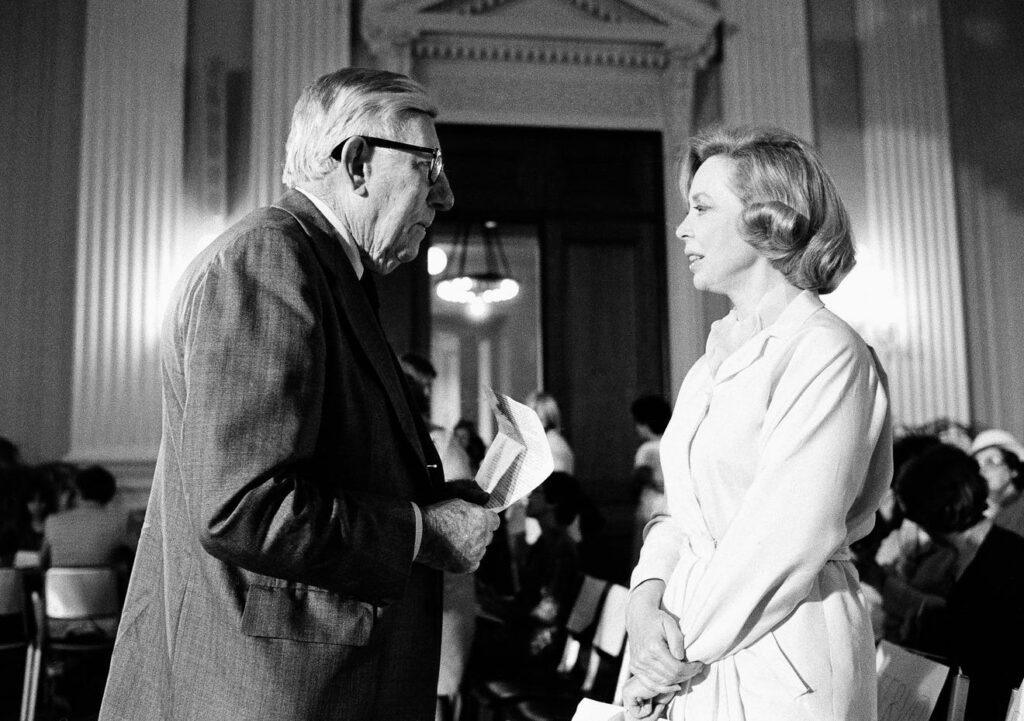Claude Pepper was a principled person, unlike today’s leaders
The following editorial was originally published by the Gainesville Sun.

September 2021 was an amazing month of political news. The Wall Street Journal reported on Facebook putting profit before society and 131 judges unlawfully ruling on cases in which they had financial interests.
Speaking of judges, four Supreme Court justice protested they were not partisan, with one justice saying they were “not political hacks” and another saying they were not a “dangerous cabal.” Speaking of financial interests, we learned the members of the Federal Reserve practiced, just like members of Congress, insider trading with millions of dollars. Bloomberg reported on how the stock market has been rigged by corporations and their managers.
A blessing of the COVID-19 pandemic is it has revealed the divisions and strains in the society of the United States. The rich benefited with every government decision.
I believe we are seeing the culmination of policies started in 1977. The country was rattled with the revelations of the Church Committee, Watergate and our former “forever” war, Vietnam. The movements to reconcile past groups excluded by society — race, sex, age and financial — also contributed to a fluid, uncertain society.
Politicians were conflicted but there were principles that guided Barry Goldwater and Nelson Rockefeller. In 1976 the Supreme Court ruled money equals free speech. The turmoil of 1977 was settled by Jimmy Carter urging less regulation of corporations, less support for labor and the use of those who we call “terrorists” as an arm of U.S. foreign policy. We now live in the logical conclusion of those policies.
The late Claude Pepper was a U.S. senator and a representative for Florida over a period of 40 years. He made his national name in Congress protecting older workers.
He sponsored and passed the Age Discrimination Act of 1978, removing mandatory retirement age for federal employees. The University of Florida Institute of Aging has the Pepper Center, named for Claude Pepper. Florida State University has its own center named after him and the Claude Pepper Foundation.

Pepper was elected to the Florida House of Representatives in 1928. In 1929 he cast the only vote against censoring First Lady Lou Henry Hoover for inviting a black Congressman’s wife to tea at the White House. Pepper was defeated by Taylor County voters for that vote.
Elected to the U.S. Senate in 1936, he was a left-liberal New Dealer. Lyndon Johnson was a FDR Democrat because he remembered his mother hauling water everyday uphill. Pepper remembered the hardships of the average worker.
His big New Deal bill was the Fair Labor Act. He supported labor, education and health reform. As the leading liberal Southern, he is given credit for the passage of the Lend-Lease Act.
He voted against poll taxes, but also voted against an anti-lynching bill. He was a conflicted senator but too liberal, and was defeated in 1950.

Pepper returned to Congress as a U.S. representative in 1962 and worked diligently for the elderly and African-Americans. He cast the only vote from the Florida delegation for the Civil Rights Act of 1964.
I believe that people should be able to work as long as they are able. Mathematicians, athletes, and chess masters are past their prime at age 35. They can still have productive careers afterwards.
They are just not the leaders. Watching and reading the news about the political scene, I reach the conclusion that our leaders have learned only one thing from Claude Pepper — stay until you die.

Perhaps Congressman Pepper really thought he was still doing quality work when he died in office at age 89. The elites have staff and can hide their deficiencies longer than a pilot or truck driver can. All three branches have been led by fossils for the last five years. Why do they hang on?
I think the legal combination of “money is free speech” and “corporations are people” rulings has ossified political discourse in the United States. The Supreme Court usually acts in concurrence with the ruling class. From Dred Scot to the 1930s court to Citizen United, the rich and powerful are protected.
Congress today reminds me of the New York legislature of the 1890s when lobbyists would be physically on the floor of the legislature paying money to representatives immediately before or after votes. The three Democratic politicians who voted against drug price regulation have received $1.8 million from big Pharma.
Claude Pepper was a principled person. Our leaders today, at all levels, are pursuing lucrative careers that are well rewarded by corporations. They protect the ancient regime.
Dorian Lucey lives in Gainesville.